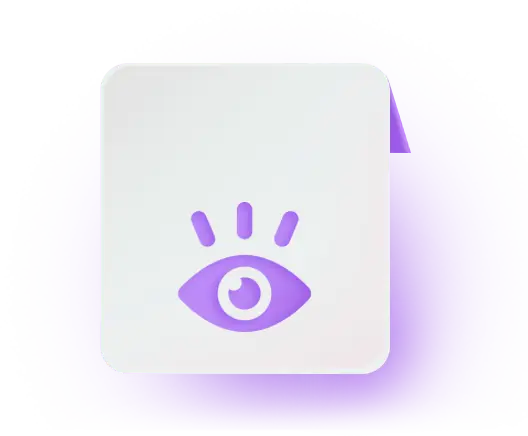CBSE syllabus for Class 6 Social Science: The first step to any exam preparation is to carefully go through the syllabus. The syllabus is an...

CBSE Class 6 Social Science Syllabus 2025
February 17, 2025
The State Council of Educational Research and Training (SCERT) was established in its current form in October 2016. Under the Right to Education (RTE) Act of 2009, SCERT Goa has been designated as the Academic Authority. Every year, a large number of students attend the Goa Board Class 6 examination, as is customary.
SCERT strives for various quality enhancement programmes, including detecting and fostering talent through the staging of competitions and scholarships to students. In addition, it is dedicated to popularising science education in Goa and executing various need-based programmes for teenagers.
The Goa board’s main responsibilities include:
Refer to the following tables for more details on Class 6th Goa Board Exams.
| Features | Details |
|---|---|
| Exam Name | Goa Board Class 6 Examination |
| Conducting Body | Goa Board of Secondary and Higher Secondary Education |
| Frequency of Conduct | Yearly |
| Exam Level | Class 6 |
| Mode of Exam | Offline |
| Total Marks | 100 |
| Medium of Exam |
|
The Goa state board Class 6 curriculum, model question papers, blueprint, question paper design, and sample papers will be updated in this article as and when it is made available. The Goa board Class 6 textbooks 2020 PDF has been published on the official website. The State Council of Educational Research and Training (SCERT) Goa Class 6 Marathi, English, Kannada, and Urdu medium books can be downloaded from this page.

The exams of the class 6 Goa Board are conducted for 2 hours or 120 minutes, each.

The Goa board determines the curriculum and subjects for all the classes. Class 6 students have the option of choosing one of the elective language subjects. Here, English is a compulsory subject. In addition, students may select one of the following optional language subjects: Hindi, Sanskrit, foreign language, or regional language.
Vasant Bhag 1 (वसंत भाग 1)
Honeysuckle
रुचिरा – प्रथमो भागः
History – Our Pasts Part I

Students who receive high grades in exams put in a lot of effort during preparation, and score better than an average student. This is due to the fact that they study according to a set of guidelines. They have a study regimen that they stick to for months and get incredible results. As a result, all students must create a comprehensive study schedule in order to improve their grades. Here are some pointers to consider:
Here are some strategies to help you improve your performance and grades in your Goa 6th exams.
1. Be prepared
2. Always arrive early and take a moment to relax
3. Pay close attention to the instructor’s last-minute instructions.
4. Do a memory dump
5. Pay close attention to the test instructions and look for details.
6. Make a plan for how you’ll spend the time you’ve been given.
Check out the best tips and strategies for passing the Goa Board Class 6 Annual Exam 2025. Some of the most important exam preparation resources can also be found here.
1. Check your syllabus first
Exam preparations should begin with a review of your syllabus. Check it out to get a sense of what you need to do to prepare for the exam. Only the new Goa board Class 6 syllabus should be used. Read the most recent syllabus. Understand the topics/chapters that have been removed from the new syllabus.
2. Know the exam pattern and marks distribution
The Goa board Class 6 exam would take place in schools. The modified and reduced syllabus will be the sole basis for the exam.
3. Create a chapter-by-chapter list of formulas.
For all the subjects prepare the relevant formulas, theorems and definitions.
4. Solve textbook questions
Knowing the formulas at your fingertips will not help you earn the grades you desire unless you understand how to use them effectively. To achieve this, you must finish all of the textbook questions at least twice. Examine the cases that have been resolved as well. This will enable you to answer any type of problem by applying the appropriate formula or reasoning based on an applicable theorem or axiom. Because the majority of exam questions are taken directly from the textbook, answering textbook questions is especially important.
5. Clear your doubts
Throughout your exam preparations, you may have various doubts, whether they are related to any topics or exams. Speak with professionals, whether they be your parents, instructors, or classmates, to dispel any doubts you may have. Avoid even the smallest doubts or fears that may arise in your mind. Rather, have them all answered at once. This can help you stay calm and prevent tension, helping you to do well in the approaching exam.


Q1. What is the abbreviation for GBSHSE?
A. GBSHSE is an abbreviation for the Goa Board of Secondary and Higher Secondary Education.
Q2. What is the Goa Board’s educational structure?
A. According to the data for 2019-20 provided on the Goa Government’s official website, the educational structure of the state of Goa consists of pre-primary, primary, middle, intermediate, and upper secondary education.
Q3. How many affiliated schools fall under the purview of the Goa School Board?
A. There are about 1,735 schools in Goa, including primary, middle, secondary, and higher secondary schools. The majority of Goa’s schools are associated with the state board of education (GBSHSE).
Q4. Where can I find my Goa Board Class 10 and Class 12 results?
A. Students in Class 10 and Class 12 can check their GBSHSE results on the state’s official website, www.gbshse.gov.in.
Q5. Is the Goa Board Class 6 Social Science Syllabus applicable to competitive exams?
A. Yes, the syllabus will help you pass competitive exams. It will be beneficial if you take several government job tests, such as the UPSC Civil Services Examination.
Q6. Is the Goa Board Syllabus adequate for preparing for the Class 6 Science exams?
A. Yes, Goa Board books are more than adequate for preparing for Goa Board Class 6 Science exams. Students can, however, use Embibe’s solutions to gain a thorough understanding of the concept.
Q1. What is the abbreviation for GBSHSE?
A. GBSHSE is an abbreviation for the Goa Board of Secondary and Higher Secondary Education.
Q2. What is the Goa Board’s educational structure?
A. According to the data for 2019-20 provided on the Goa Government’s official website, the educational structure of the state of Goa consists of pre-primary, primary, middle, intermediate, and upper secondary education.
Q3. How many affiliated schools fall under the purview of the Goa School Board?
A. There are about 1,735 schools in Goa, including primary, middle, secondary, and higher secondary schools. The majority of Goa’s schools are associated with the state board of education (GBSHSE).
Q4. Where can I find my Goa Board Class 10 and Class 12 results?
A. Students in Class 10 and Class 12 can check their GBSHSE results on the state’s official website, www.gbshse.gov.in.
Q5. Is the Goa Board Class 6 Social Science Syllabus applicable to competitive exams?
A. Yes, the syllabus will help you pass competitive exams. It will be beneficial if you take several government job tests, such as the UPSC Civil Services Examination.
Q6. Is the Goa Board Syllabus adequate for preparing for the Class 6 Science exams?
A. Yes, Goa Board books are more than adequate for preparing for Goa Board Class 6 Science exams. Students can, however, use Embibe’s solutions to gain a thorough understanding of the concept.

Following are some of the schools in different districts of Goa that are affiliated to the state board:
| S.No. | Schools |
|---|---|
| 1 | G.M.S. Hutatma Manohar Pednekar |
| 2 | G.M.S. Hasapur |
| 3 | Hutatma Bapu Gawas Memorial Govt. High School |
| 4 | Lokshikshan High School |
| 5 | Harmal Panchakroshi High School |
| 6 | St. Anne’s Middle School |
| 7 | G.M.S. Khorlim |
| 8 | G.M.S. Mapusa |
| 9 | G.M.S. Tivim |
| 10 | Govt. High School, Namoshi, Guirim |
| 11 | Govt. High School, Alto Betim |
| 12 | G.M.S. Assonora |
| 13 | Govt. High School, Nadora |
| 14 | Green Meadows School |
| 15 | Jnyan Vikas High School |
Click here to access the full list of schools in Goa.

Here are a few questions that are frequently asked by parents to help their wards who are in middle school.
Q1. How can I help my child to get interested in studies without stressing them?
A. At this age kids can be given more real life examples to make them understand and get interested in studies. Like when you go to a shop ask them to calculate the cost of items purchased and amount to be paid and change to be taken back from the shopkeeper. Same way can be applied to other subjects.
Q2. How much physical activity (playing) is preferable during exams?
A. During exams anything between 30 minutes to 45 minutes is preferable. As there are chances that students will get tired or injured during play which may directly or indirectly affect their exams. So students need not skip playing as games give them relaxation which helps further in concentration in studies too.
Q3. How to improve the concentration of my child?
A. Techniques to improve & increase concentration power & focus in children

Students can prepare for the following list of competitive exams:
| NSTSE | The National Level Science Talent Search Exam is organised by the Unified Council for students from classes 2 to 12. It is one of the most popular scholarship examinations conducted in India. |
| Olympiads | These are some Olympiads organised by the Science Olympiad Foundation (SOF) such as IMO, NCO, NSO and ISO. They take place only once a year and are extremely competitive. |
| NIMO | The EduHeal Foundation organises the National Interactive Maths Olympiad (NIMO), which makes math more enjoyable. It intends to accomplish this by introducing interactive activities such as seminars, workshops and Olympiads. |
| NBTO | The National Biotechnology Olympiad raises awareness about biotechnology and creates a sense of challenge and competition in students. It is also encouraging the younger generation to improve their knowledge of biotechnology issues and assess their skill for future careers in biotechnology. |
| GeoGenius | GeoGenius, a non-profit organisation founded by leading academics, aims to increase school children's understanding of geography. It also teaches them about the planet and inspires deep love and respect for the environment, which aids in their growth. |
| ASSET | Assessment of Scholastic Skills through Educational Testing is a skill-based assessment test that has been scientifically designed. Rather than using multiple-choice questions, it focuses on how well school students understand fundamental concepts. The test also provides information on individual students' and Classes' strengths and weaknesses. |

Real-World Learning is an educational strategy in which schools work with community partners and industry professionals to involve students in authentic, relevant challenges, projects, and experiences that help them build career awareness and preparedness. Real-world learning enables students to make a positive impact on the world and the lives of others.
As digital technologies grow increasingly prevalent, students must be prepared to deal with an abundance of opportunities as well as issues. As the world’s reliance on highly sophisticated, constantly growing technologies grows, so does the demand for those with the appropriate digital abilities. Information technology has an impact on nearly every aspect of modern life (IT). Because technology is continually growing, there are several career opportunities in this industry. As a result, learning the principles of information technology at a young age can be extremely advantageous to kids in the future. As a result, information technology is viewed as a critical course of study in high school.